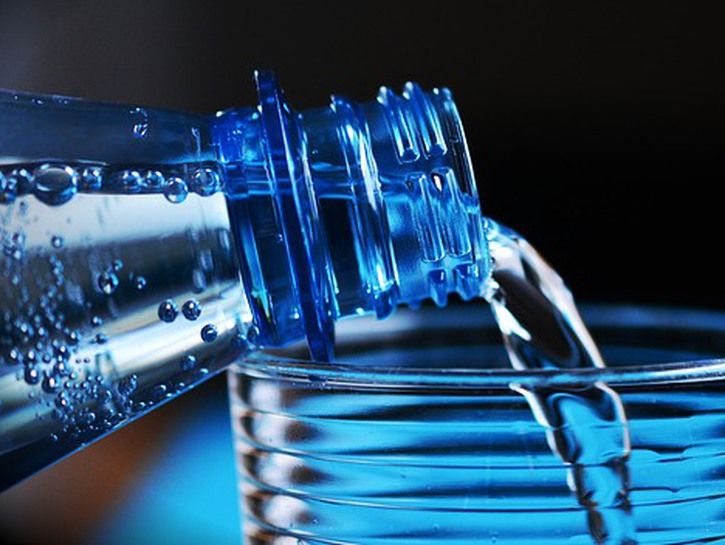Wait a second. Water can’t expire… can it? Well, not exactly, but that’s not why those expiration dates on the bottles are there.
Best before dates can be a little tricky to understand, let alone listen to. For the most part, when it comes to your food, you shouldn’t assume that a “best before” date means you’ll get sick if you consume something after that particular day. However, there are use by and sell by dates that each means their own thing, and keeping up with everything can get confusing.
The one date you shouldn’t ignore, though, is the expiration date on water bottles.

It’s not exactly the water itself that’s the issue. According to Mental Floss, the plastic that the water is packaged in is the culprit for varying degrees of water’s freshness. Water is usually packaged in a type of plastic called polyethylene terephthalate (PET) and water cooler jugs use high-density polyethylene (HDPE). After a certain amount of time has passed, the plastic might start leaching into the water, which affects its overall taste.
PET contains a chemical called BPA, which stands for bisphenol A. There have been many studies to suggest that a serious intake of BPA could have negative effects on your body. For example, BPA can cause embryo defects, cause male reproductive dysfunction, and can cause fertility issues in women. After the expiration date on your water bottle hits, the plastic could start leaching some of these chemicals into the supply, making it more harmful to consume and souring the taste.
The date on water bottles is also a crucial factor for manufacturers. According to Live Science, if any batch needs to be recalled or if there are ever any errors in production, the date is just part of a larger picture that contains more traceable information. Plus, most of the companies that bottle water also bottle other drinks like soda, which does expire. Since soda needs an expiration date, companies tend to just stamp all bottles with an expiry date as opposed to having a separate machine just for water.

It’s important to keep in mind that having a case of “expired” water bottles doesn’t mean they’re unsafe to consume. Rather, it just means they’re not going to taste the same as a new case and they’re on the way to potentially suffer from leaching.
Remember that water is not exactly going to expire on its own, but the plastic surrounding it can certainly add some less-than-desirable properties to your drinking supply. Be mindful of the expiration date and if you have a case of water from 4-5 years ago sitting around in your house, it might be time to swap it out for a fresher batch.
